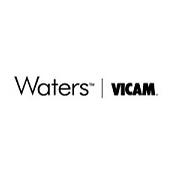Ascites in Broiler Chickens
Ascites (Water Belly) in Broiler Chickens during Winter Season
Published: December 19, 2011
Summary
Ascites (or water belly) is a condition of fast growing broiler chickens in which the excess amount of ascitic fluid accumulated in the abdominal cavity. It has become major concern to the poultry industry around the world. This condition is extremely common in high altitude & more particularly during winter / cooler season.
Ascites is associated with inadequate supply of oxygen, poor vent...
Related topics
Authors:
Influencers who recommended :
Emad ElgazzarJoin to be able to comment.
Once you join Engormix, you will be able to participate in all content and forums.
* Required information
Would you like to discuss another topic? Create a new post to engage with experts in the community.
Create a post31 de octubre de 2015
Nice discussion.Need to add few points.
Do not feed high density feed in winter.Increase calorie protein ratio without affecting amino acid balance.
Maximum energy of feed should be contributed by cereals rather than oil.Use crumble feed instead pelleted feed.
Managing temperature of house with equal emphasis on ventilation is very important apart from feed management.
Del Monte Foods
1 de noviembre de 2015
From our experience, You don't need to play too much with feed because the most known broiler breeds have nutrition Guieds for better results, so I prefere to concentrate on ventilation and house tempretures, if you can keep them near the optimum case you'll properly reduce the Ascites problem. this will increase your cost in winter but at the same time will save your birds.
1 de noviembre de 2015
As we are aware ascites is a metabolic disorder specially observed when there is poor ventilation .Modifying nutrition requirement as per experience is equally important.Most of the requirements are true in ideal situation when the climatic conditions are most suitable to bird.
1 de noviembre de 2015
The disease is most commonly caused by pulmonary hypertension resulting in the failure of the right ventricle, one of the heart's four chambers. Ascites is most common in broilers raised at high altitudes (altitudes greater than 3,500 meters). The decreased supply of oxygen (hypoxia) at such altitudes can lead to pulmonary hypertension.
Ascites due to pulmonary hypertension can also occur in broilers raised in low-altitude areas. Ascites at low altitudes is usually the result of the demand for oxygen in fast-growing birds that have respiratory systems unable to handle such high demand. The oxygen requirement of fast-growing broilers can be reduced by slowing growth. Strategies to slow growth include reducing the number of hours of light exposure the birds experience per day or feeding birds a low-energy diet.
Ascites can also occur as a result of liver damage caused by aflatoxin or toxins from plants such as Crotalaria (also known as rattlebox or rattleweed) or by Clostridium perfringens infection. Amyloidosis is the most common cause of ascites in meat-type ducks and breeders. Amyloidosis is the accumulation of abnormal proteins (called amyloids) in one or more organ system.
2 de noviembre de 2015
The most appropiate interpretation is received so far from Dr.Siddiqui.Farmers should adhere to same and we should deviate from the topic as there were enough on same except discussing the line of treatment during crisis.Fraternity should guide the same instead of retrieving the truth.
2 de noviembre de 2015
You can try intermittent lighting I.e. 2 hours lighting followed by 2hours dark for 4-5days will give relief from Ascites
2 de noviembre de 2015
Yes we should focus on its relief to the birds as well as the farmers through treatments and modification of management as per the merit of the crisis on spot rather than analysing the cause and to face firther aggravation.
Couvoir Scott
3 de noviembre de 2015
I think the sodium value of 400ppm should be clarified. I suppose it is for the water. I would propose to add more specifically electrolyte balance. We have seen ascites with very low chloride levels and normal sodium levels in the feed . The result was the same as high sodium levels resulting in metabolic alkalosis. Changes in blood pH will change oxygen ddissociation from hemoglobine and can be equivalent to low oxygen (Bohr effect) Low brooding températures increase oxygen consumption in Young chick that cannot be compensated by ventilation.
3 de noviembre de 2015
from our experinces can adde
betain ; thyophyline; sod bicarb and ammonium chloride
4 de noviembre de 2015
The suggestion from Dr.Zead as shown above should precisely be Biotin.Theophylene.Sodibycarb and Ammonium chloride inclusion.if I am correct in my anticipation in above statement to arrest the chances of ascities.We would wecome to know about the doses of those chemicals per Lt of water or in feed.
4 de noviembre de 2015
In my above statement the drug Theophylene would be read as Theophylline only.Sorry to spell wrong earlier.
5 de noviembre de 2015
IT IS A voice of the time topic bcs winter is on door ,,,,,,,,in my 20 yrs of experience it is the ventilation which must b rectified according to the birds need .............if continued then energy content should b diluted ...........add vit c in water .................never compromise on ventilation ..........
5 de noviembre de 2015
All the discussions r good,but we have to go for resolving the problem. Ascite is metabolic disorder, practically we cannot changes in feed.so we will over come through
1- use ammonium Chloride (in feed or through water)
2- organic acids
5 de noviembre de 2015
Here in pakistan mostly ascities due to DEB imbalance Raw material quality a key factor to concentrate and variation in a lot also. Other factors also important as ventillation but in my view imbalance of electrolytes force develop a negative pressure and force fluids to move across semi-permiable membrane to move in cavities.
7 de noviembre de 2015
It is at all clear that the electrolyte balance in negative direction would generate a pressure to allow body fluid to rush to fill innumerable cavities of the body of a bird to precipitate ascities in winter and that too in abdominal zone.I reqest to highlight points not by sheer imagination but by rational data only.
9 de noviembre de 2015
Ascites in winter is generally a manage mental disorder when the farmer suffocate the house in an attempt to maintain heat in the house. Doing so he create an environment deficient in oxygen and raised ammonia. Both the entities act on pulmonary tissue where flow of blood increases many fold to coop the oxygenation of blood. Ammonia also facilitate in setting pulmonary congestion. as a result in flow increases as compared to out flow in pulmonary tissue resulting into pulmonary ascites. the Back pressure afterward exert pressure on heart and ultimately abdominal ascites sets in.
9 de noviembre de 2015
I will wecome to have the detailed dose of so called Renalfit in poultry along with its efficacy with trial report.The name reveals the product is confined to improve renal function though in many a instances the etiology is surfaced as lack of oxegen and more ammonia in the house causing ascities in winter.All fraternity are requested to vetilate the solution at farmers levels instead of throwing something irrelevent and through sheer imagination.
Vipla nutricare
9 de noviembre de 2015
use ammonium chloride along with magnesium sulpahte u will xllnt results,









.jpg&w=3840&q=75)












.jpg&w=3840&q=75)